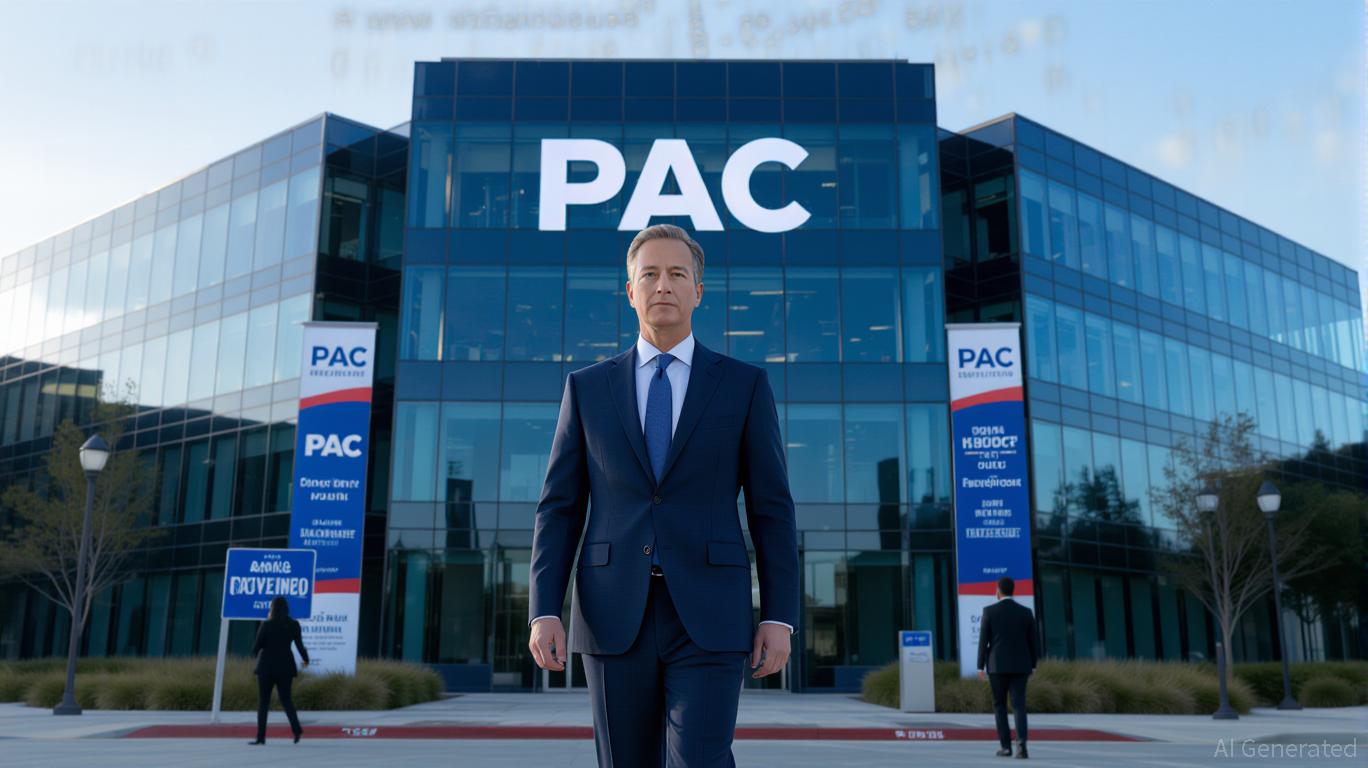Gen Z's Secret Weapon: Teaching AI to the Older Workforce
- Mark Cuban highlights Gen Z's critical role in AI implementation, as 95% of generative AI pilots fail due to leadership misapplication. - He urges young professionals to master tools like Sora and Veo while tailoring AI solutions for SMEs lacking technical expertise. - Comparing AI to the PC revolution, Cuban emphasizes strategic adoption over tool accumulation, echoed by leaders like Tim Cook and Jensen Huang. - South African SMBs demonstrate global AI adoption trends, using AI for efficiency gains desp
Mark Cuban, the billionaire investor and former Shark Tank star, has outlined a compelling vision for how artificial intelligence (AI) is reshaping the business landscape and creating new opportunities for Gen Z workers. With a focus on implementation and integration, Cuban emphasizes that the future of AI lies in its ability to empower individuals—especially young professionals—who can teach older generations how to adopt and leverage these technologies effectively. He argues that Gen Z, despite being recent graduates, is uniquely positioned to fill a critical gap in the workforce as companies struggle to understand how to properly implement AI.
Cuban highlights that 95% of generative AI pilots have failed due to a lack of understanding and misapplication by business leaders. This has created a significant demand for individuals who can not only grasp AI technologies but also customize and implement them in real-world business environments. He encourages Gen Z to focus on learning tools like OpenAI’s Sora and Google’s Veo, as well as how to tailor AI models to suit specific company needs. According to Cuban, these skills are essential for securing jobs in the AI-driven economy.
The billionaire also draws a parallel between the AI revolution and the earlier PC boom, where he himself entered companies unfamiliar with new technology and demonstrated its value. He believes that today’s young professionals can do the same with AI, particularly in small and medium-sized businesses (SMBs) that lack the resources and expertise to adopt AI independently. These companies, numbering in the millions, are in urgent need of individuals who can implement AI solutions that improve productivity, reduce costs, and drive growth.
Cuban is not alone in his optimism. Other business leaders, including Apple CEO Tim Cook and Nvidia CEO Jensen Huang, have echoed similar sentiments. Cook recently urged Apple employees to accelerate their AI adoption, stating that failure to do so would leave the company behind. Huang, meanwhile, emphasized that while AI may not replace jobs, individuals who fail to integrate AI into their workflows will be outpaced by those who do.
The urgency for AI adoption is not limited to the U.S. Small and medium businesses across South Africa, for instance, are increasingly turning to AI to improve efficiency and competitiveness. These companies are deploying AI tools in customer service, bookkeeping, and sales, achieving measurable outcomes in productivity and strategic decision-making. The trend underscores a global shift where AI is becoming a foundational element of business strategy, particularly for organizations with limited resources but high growth ambitions.
However, the success of AI integration hinges on proper implementation. Experts caution that many businesses fall into the trap of purchasing multiple AI tools without a clear strategy, leading to inefficiencies and wasted resources. This highlights the importance of a structured approach, including prioritizing relevant technologies and aligning AI adoption with overall business objectives. SMBs are increasingly partnering with trusted service providers to ensure effective AI implementation and data security, recognizing the need for long-term support beyond one-time solutions.
As AI adoption continues to grow, it is reshaping the job market and redefining the skills that employers value. Cuban’s insights reinforce a broader trend: the most successful entrepreneurs and professionals will be those who not only understand AI but can also apply it strategically to solve real-world problems. This shift presents a unique opportunity for Gen Z workers, who are being urged to embrace AI as a core skill and a competitive advantage in the evolving job market.

Disclaimer: The content of this article solely reflects the author's opinion and does not represent the platform in any capacity. This article is not intended to serve as a reference for making investment decisions.
You may also like
Blockchain-Driven GDP Reporting: A New Era for Economic Forecasting and Fintech Innovation
- U.S. Department of Commerce plans to publish GDP data on blockchain, leveraging its tamper-proof, decentralized architecture to enhance transparency and data integrity. - Blockchain-enabled real-time GDP reporting reduces data lag and noise, enabling dynamic forecasting models and faster policy responses compared to traditional delayed reports. - The initiative creates investment opportunities for fintech firms (e.g., IBM, Snowflake) and MLaaS providers (e.g., AWS, Google Cloud) in blockchain infrastruct

AI Agent Platforms: The Next Frontier in Search Disruption and Recall's Strategic Edge
- Recall.ai disrupts traditional search by transforming real-time meeting data into contextual intelligence via its "Meeting Bots as a Service" platform. - The API-first model enables enterprises to integrate AI-driven transcription, sentiment analysis, and interactive features like Output Media for automated workflows. - With $10M ARR and 300+ enterprise clients, Recall's usage-based pricing and vertical-specific solutions position it as a scalable AI infrastructure leader in the $12B transcription market

Solana's $300 Target Amid Volatility and Emerging BlockDAG Competition: A Contrarian Play on High-Growth Crypto Assets
- Solana (SOL) faces a critical juncture in 2025 amid volatility, with a $195.99 price and 24.80% annual gain despite regulatory risks and BlockDAG's 15,000 TPS challenge. - Institutional adoption ($1.72B invested by 13 firms) and upcoming Firedancer upgrades aim to boost scalability, while a potential 2025 ETF approval could drive SOL toward a $300 target. - BlockDAG's $385M presale and 2,900% early returns highlight disruption risks, but Solana's 4,500+ developers and 65,000 TPS edge maintain its DeFi/NF

Meta's Political Playbook in AI Regulation: Reshaping Tech's Competitive Landscape and Investment Horizons
- Meta's 2025 political strategy leverages super PACs and lobbying to weaken AI regulations, targeting California bills like SB 53 and SB 942. - The company's $64-72B AI infrastructure spending and NVIDIA partnerships drive 50% revenue growth for hardware suppliers. - Google and Microsoft pursue similar deregulatory goals but emphasize ESG commitments, creating sector-wide sustainability gaps. - Federal investigations and state transparency laws pose risks, while infrastructure investments position Meta to
